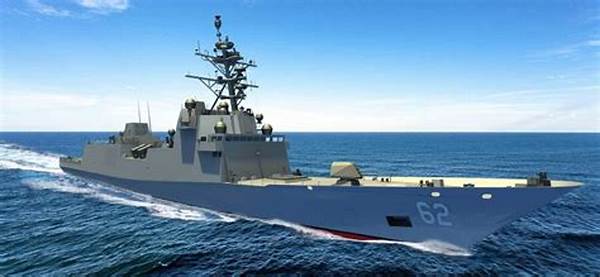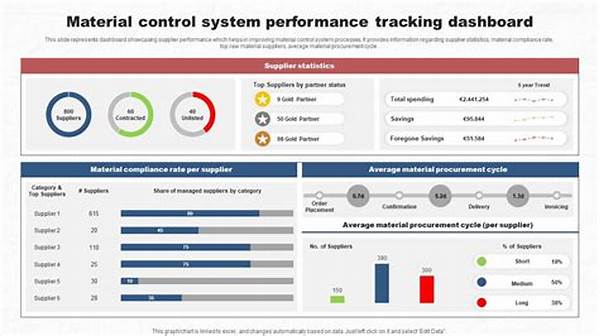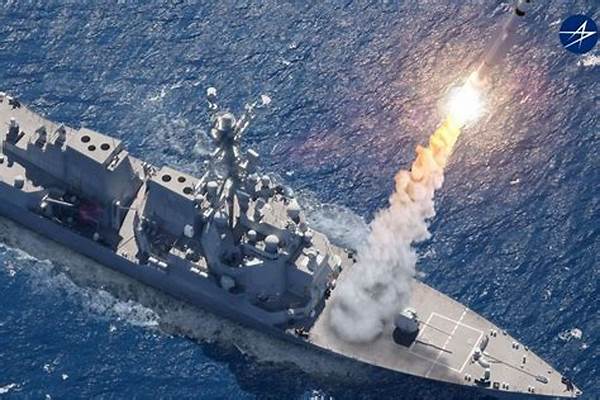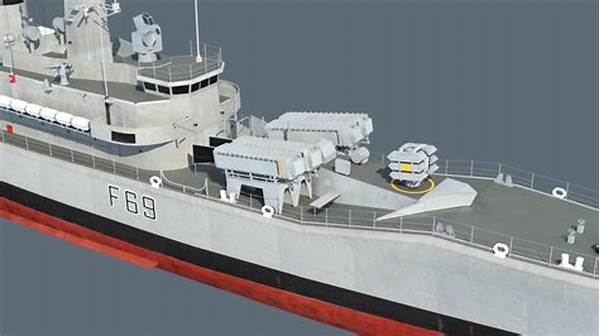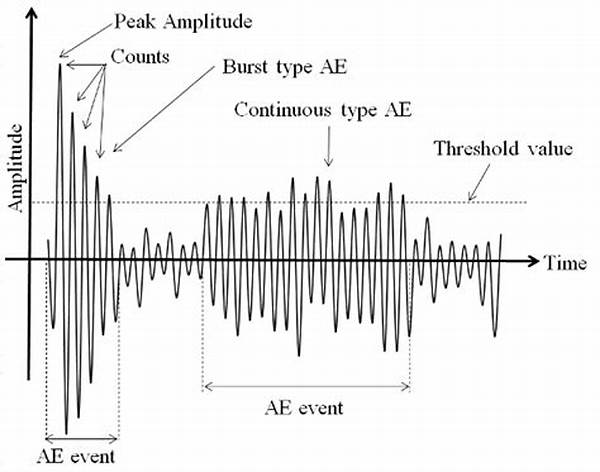Understanding the environmental impact of frigate propulsion is becoming crucial in today’s environmentally conscious world. In the naval realm, frigates play a significant role due to their versatility and capabilities. However, the propulsion systems these vessels use contribute to environmental concerns that need addressing. This article delves into the environmental implications, exploring various aspects and offering insights into potential solutions.
The Hidden Toll of Frigate Propulsion
The environmental impact of frigate propulsion might not grab headlines, but it’s a quiet storm brewing in the marine world. These vessels, with engines guzzling fossil fuels, might be making waves in the sea, but they’re also stirring up trouble in the air. The emissions from these engines contain pollutants that contribute significantly to climate change, hitting marine ecosystems hard.
It’s not just the air that’s feeling the heat. The underwater noise pollution from frigate engines is like a never-ending rock concert that disturbs marine life. Whales, dolphins, and other sea creatures rely on sound for navigation and communication. However, the constant buzz and roar of engines pose a real threat, altering their natural behaviors and, in some cases, leading to strandings. The environmental impact of frigate propulsion is a mix of fuel emissions and acoustic disturbances, painting a grim picture for marine biodiversity.
Efforts to mitigate these impacts are on the rise, with innovations aimed at greener propulsion solutions. From hybrid systems to alternative fuels, there’s a push to turn the tide on the environmental impact of frigate propulsion. The naval sector is at a crossroads, facing the challenge of balancing defense needs with environmental responsibilities. It’s a vibe shift towards sustainability that’s gaining momentum.
Slang Breakdown: Frigate Propulsion’s Green Issue
1. Eco-headaches: The environmental impact of frigate propulsion is like a nagging headache, a constant reminder of the pollution and harm caused by traditional naval technology.
2. Fuel Fomo: Watching the naval world explore alternative fuels, the environmental impact of frigate propulsion is vibing with Fomo – fear of missing out on cleaner, greener energy sources.
3. Noise Boss Battle: Marine life ain’t vibing with this noise pollution, making the environmental impact of frigate propulsion feel like a boss battle underwater.
4. Whale Woes: The constant hum of engines causes major whale woes, highlighting one of the meanest environmental impacts of frigate propulsion on marine life communication.
5. Green Ship Goals: The future’s bright and green for the naval world, pushing forward despite the environmental impact of frigate propulsion. Time to set sail towards sustainable aspirations.
Green Innovations on the Horizon
The environmental impact of frigate propulsion is like a shadow over the naval industry, but innovations are lighting the way forward. There’s a buzz in the air about hybrid propulsion systems, which blend traditional and clean energy sources. These hybrid systems are like the next-gen gaming consoles of naval tech – powerful and efficient. Their development is driven by the need to cut down emissions and keep the planet green.
Moreover, alternative fuels are entering the scene, promising a cleaner burn. Biofuels and renewable energy solutions are being tested and tweaked, sparking hope that the environmental impact of frigate propulsion might get a serious makeover. The change won’t happen overnight, but these innovations are striding forward, creating waves of positive shifts. It’s all about balancing speed with sustainability, aiming for a world where naval prowess doesn’t come at the expense of Mother Earth.
Navigating these waters involves complex decisions and big investments. Yet, the momentum is building, driven by a global imperative to protect the environment. The environmental impact of frigate propulsion is set for a transformation, and the future looks a tad bit greener from here.
Whispering Seas: Noise Pollution in Focus
Under the surface, the environmental impact of frigate propulsion poses a real threat, especially through noise pollution. It’s like blasting loud tunes at a silent retreat – not cool. Marine creatures are hitting the do-not-disturb button as engines roar, messing with their vibe and routine.
1. Sound Clash: Picture sonar waves crashing into marine life’s good vibes – that’s the noise pollution bit.
2. Navigation Blues: Whales and dolphins struggle with these “remixes” in their ocean soundtrack.
3. Disturbance Waves: Constant engine thrum means acoustic disturbances – the bad kind.
4. Chat Scramble: Marine life’s convo gets scrambled, messing with survival tricks.
5. Chill Zone Gone: Peaceful deep-sea zones aren’t so chill anymore.
6. Stress Signals: Animals are sending stress signals like it’s an SOS call.
7. Stranding Woes: Whales facing engine thrums get disoriented, sometimes stranded.
8. Frequency Freakout: Different engine frequencies mess with marine navigation.
9. Eco Reverb: Acoustic pollution reverberates, upping stress in ecosystems.
10. Tune Tweak: Noise levels need tweaking to lessen environmental impacts.
Setting Sail for a More Sustainable Future
Navigating the turbulent waters of environmental impact of frigate propulsion can feel like steering a ship through a storm. But hope is on the horizon – innovation and sustainability are trending in the right direction. The naval industry is waking up to the pressing need for change, with many shipbuilders exploring greener pastures.
Embracing cleaner propulsion tech is crucial, like swapping out outdated engines for hybrid systems that whisper instead of roar. The spotlight is also shining on alternative fuels like biofuels and renewable energy, which promise a cleaner, healthier marine ecosystem in the long run. The trick is in scaling up these innovations, making them the norm rather than the exception.
Implementation, though, is anything but smooth sailing. There’s engineering challenges, hefty price tags, and the ever-watchful eye of bureaucracy. But persistence is key, and the outcome will be a greener sea. These forward-thinking strategies can mitigate the environmental impact of frigate propulsion, protecting our oceans for generations to come.
A Sustainable Sea Voyage Summary
Stepping back into the big picture, the environmental impact of frigate propulsion is more than just a footnote in the marine world. It’s a hot topic that screams for attention and innovation. The noise pollution, emissions, and ecological disturbances are a call to action for everyone involved in naval operations.
Green initiatives and tech solutions are rolling out at a steady pace, breaking down barriers and introducing clean propulsion methods. It’s not about discarding the old for the new but refashioning existing technologies to align with environmental norms. The challenge lies in making these solutions mainstream without compromising naval performance.
At the heart of this transformation is a determination to preserve marine life, cut down emissions, and nurture a more sustainable relationship between humans and the sea. By focusing on reducing the environmental impact of frigate propulsion, there’s hope for a future where the echoes of ship engines harmonize with the natural notes of the ocean, allowing us yet to enjoy a navy that’s both mighty and mindful.
